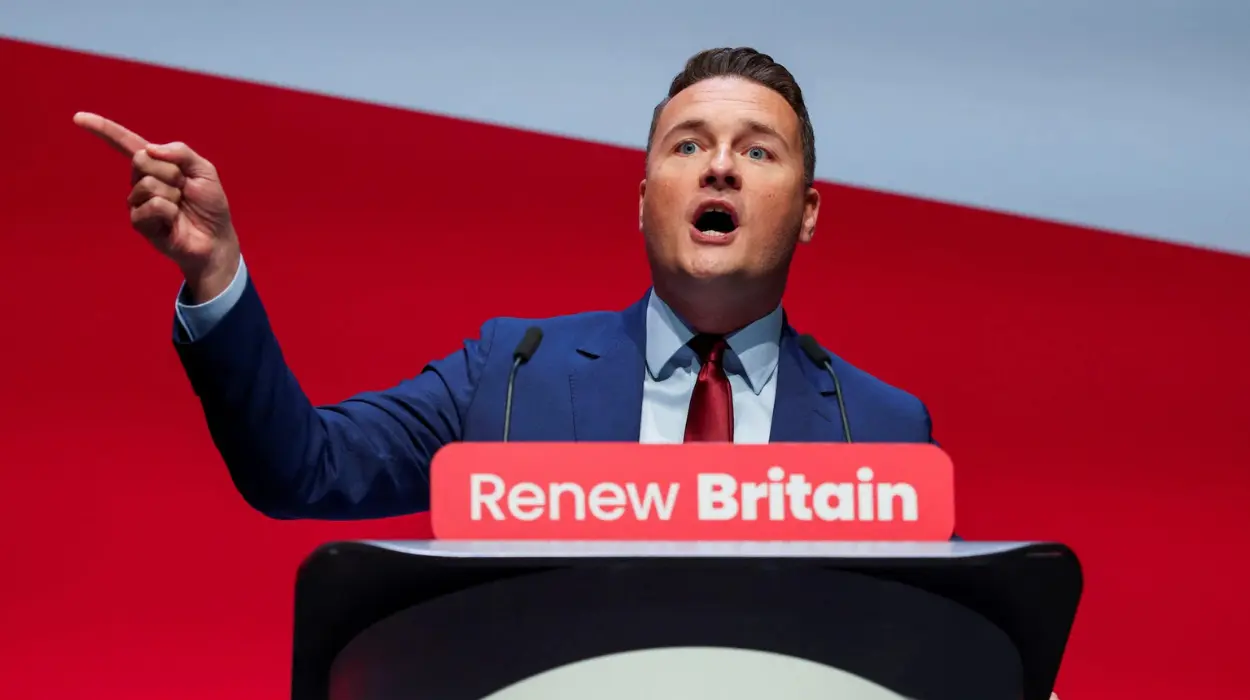UK (Parliament Politics Magazine) – Health Secretary Wes Streeting says GPs cannot cling to outdated booking systems and vows reforms will proceed despite BMA strike warnings.
As reported by The Telegraph, Wes Streeting said GPs must abandon outdated systems after doctors threatened strike action over appointment booking reforms.
He confirmed he will not back down in the dispute with unions over plans for GP appointment requests.
Starting Wednesday, GP practices in England must keep online booking open for non-urgent appointments from 8 am to 6:30 pm on weekdays.
The British Medical Association has opposed the changes, warning that the measures lack protections against patient overload in GP surgeries.
What changes did Wes Streeting promise for GP bookings?
Wes Streeting described the change as “simple but transformative,” saying it will put patients first and end the 8 am appointment rush.
He said patients had long been trapped by systems “designed for the last century.”
Mr Streeting stated,
“While we’ve all been booking holidays, ordering groceries, and managing our banking online for years, too many parts of our health service have clung to outdated systems.”
The health secretary said,
“There’s no comfort in the status quo if patients continue to be inconvenienced and frustrated, so we are changing it.”
Mr Streeting argued that online booking is optional, giving patients more ways to schedule appointments.
According to him, leading practices have reduced waiting times from 14 days to three by adopting modern systems.
At the Labour Party conference in Liverpool, Mr Streeting said,
“Tomorrow, we are reforming general practice so patients can request appointments online at any point of the day.”
The health secretary stated,
“Many GPs already offer this service, because they’ve changed with the times. Why shouldn’t booking a GP appointment be as easy as booking a delivery, taxi, or takeaway? Our policy comes alongside £1bn extra funding for general practice, and 2,000 extra GPs. Yet the BMA threatens to oppose it.”
He added,
“In 2025, I give you this warning. If we give into the forces of conservatism, they will turn the NHS into a museum for 20th century healthcare. We will always stand up for the interests of patients. I won’t back down.”
Mr Streeting described the reforms as a Plan for Change to modernise the NHS and ensure its future relevance.
What did the BMA say about the risks of online GP bookings?
The British Medical Association said,
“Online systems currently cannot distinguish between non-urgent and urgent patient queries, and with practices already understaffed and overworked, GPs fear this could lead to potentially serious and life-threatening problems being delayed or missed entirely.”
The union stated,
“Doctors will need to be reallocated away from booked appointments to manage the potential online triage tsunami, leading to fewer GP appointments with patients.”
The BMA added,
“GPs are worried that without any increase in practice capacity, considerable amounts of practice time will be diverted to reviewing the barrage of online requests and queries, thus reducing time for routine appointments and planned patient care.”
What did Rachel Power say about patient appointment safety?
The Patients Association’s CEO, Rachel Power, said,
“Patients should feel confident that when they book or request an appointment, whether online, on the phone, or in person, their needs will be assessed swiftly and safely by someone with the right training and skills to judge urgency.”
How does the new NHS online system for specialist appointments work?
Patients will be triaged through the NHS app by dedicated teams following their GP appointment.
The new digital system will allow patients to schedule their first specialist appointment online and consult via video or phone.
NHS England said the system will help reduce demand pressures and ease long local waiting lists.
NHS 10-year plan
The NHS 10-year plan aims to shift care from hospitals to local neighbourhood centres, expanding urgent care and reducing hospital reliance.
Its target is to modernise services digitally, making the NHS app the main access point, creating a single patient record, and leading in AI-enabled care. The plan also aims to expand mental health support in all schools and colleges by 2030.


